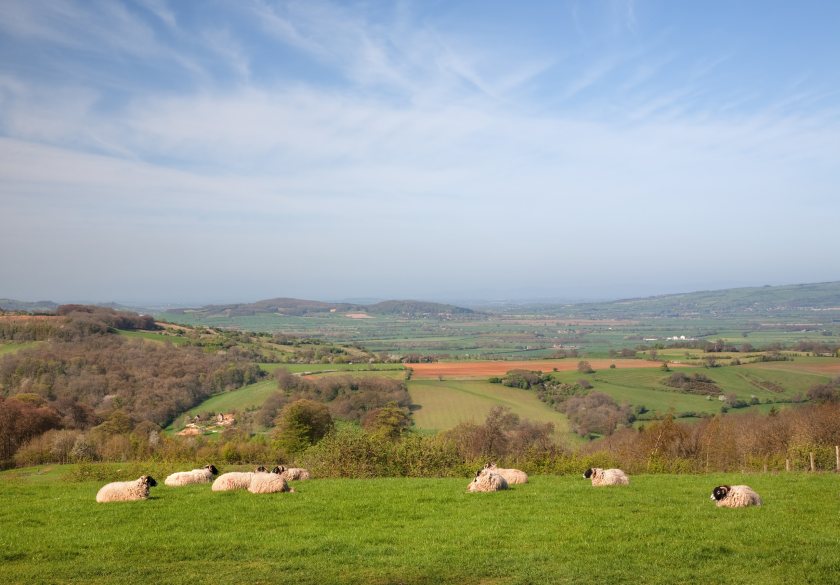
Farming unions have urged the Welsh government to address 'concerning' modelling that shows the new Sustainable Farming Scheme (SFS) could deliver negative economic impacts for farmers, rural jobs and the wider food supply chain.
The Welsh government has released the evidence base underpinning the introduction of the SFS, including its Business Case, Integrated Impact Assessment and updated economic modelling.
The analysis predicts that the scheme’s universal actions could, in a worst-case scenario, lead to a 5% reduction in livestock numbers, a cut of 1,163 Standard Labour Requirements, and a fall in Farm Business Income of £76.3m — equivalent to about £4,900 per farm.
The figures represent a halving of the projected losses compared to earlier assessments, but farming leaders say the potential damage remains significant.
Farmers' Union of Wales (FUW) President Ian Rickman said the published assessments were “comprehensive and complex” but still highlighted “a concerning negative impact on family farms across Wales.”
He stressed that while farmers are being asked to deliver more for society and the environment, the sector remains constrained by “a twelve-year-old budget settlement that represents a substantial real-terms cut in funding.”
Mr Rickman called on the next Welsh government to increase the Universal Layer of the SFS by at least £76m above the current £238m base funding, to fully offset the predicted losses and align support with the scheme’s policy ambitions.
NFU Cymru echoed these concerns, describing the latest economic modelling as “extremely concerning.” President Aled Jones said: “The economic modelling estimates a reduction in the number of jobs, income and production.
"There is, therefore, more work to do to support Welsh farming, as well as the businesses and communities that we underpin, alongside securing the critical mass of production from our farms that supports the £10 billion food sector in Wales.”
While welcoming improvements to the scheme design — such as the inclusion of a social value payment and the removal of the controversial 10% tree cover requirement — NFU Cymru said further work is needed to mitigate negative impacts.
The union emphasised that the Universal Layer must remain at the heart of the scheme and be properly resourced. It also argued that the scheme’s habitat requirement must be reviewed, with greater flexibility introduced on temporary habitat options.
In addition, NFU Cymru called for a commitment to maintain at least the 70:30 budget split between universal and optional or collaborative layers.
Looking further ahead, the union said the budget should be increased to a minimum of £500m to reflect inflation and meet ambitions for food production, climate action, environmental stewardship, rural communities and the Welsh language.
Both unions stressed that Welsh farmers should not be financially disadvantaged by moving away from the Basic Payment Scheme, and that agricultural support must deliver stability to protect farm businesses, rural jobs and the wider food sector.
Mr Rickman said it was “crucial that the critical mass of livestock is maintained and that any further reductions are avoided at all costs,” while Mr Jones urged ministers to “use the information published today to review and address elements that negatively impact on income, jobs and production levels.”
Despite their differences in emphasis, the FUW and NFU Cymru are united in insisting that farmers must not lose out under the new scheme and that the Welsh government must provide funding that fully reflects the additional demands being placed on the industry.
NFU Cymru confirmed it will meet the Deputy First Minister in the coming weeks, while the FUW pledged ongoing dialogue with the government to ensure “the additional actions expected of Welsh farmers are recognised by their true value.”
